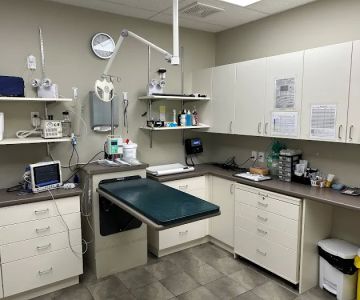- 1-Essential-Prerequisite-Classes
- 2-Core-Veterinary-School-Courses
- 3-Additional-Skills-and-Electives
- 4-Real-Student-Experience
- 5-Preparing-for-Veterinary-Career-Success
1. Essential Prerequisite Classes Before Veterinary School
When asking what classes do I need to be a veterinarian, the journey begins long before veterinary school. Most programs require a strong foundation in science and math. Key prerequisite classes typically include biology, chemistry (both general and organic), physics, and mathematics, usually through calculus or statistics.
These courses build the critical thinking and scientific understanding necessary to succeed in rigorous veterinary studies. Additionally, many schools expect coursework in English or communication to prepare students for effective client interactions.
1.1 Importance of Biology and Chemistry
Biology offers insight into animal anatomy and physiology, while chemistry explains biochemical processes essential for understanding medication and diagnostics in veterinary practice.
1.2 Physics and Math Foundations
Physics helps students grasp mechanics relevant to animal movement and imaging techniques, whereas math skills support data analysis and research methods.
2. Core Veterinary School Courses After Admission
Once accepted into veterinary school, students embark on a more specialized curriculum. Core courses cover anatomy, physiology, pharmacology, pathology, microbiology, and animal nutrition. Hands-on labs and clinical rotations deepen practical skills.
Students learn to diagnose illnesses, perform surgeries, and manage animal welfare across species. This phase is intense but crucial for developing competent veterinary professionals.
2.1 Clinical Training and Internships
Veterinary programs emphasize real-world experience, allowing students to apply theoretical knowledge in clinics and hospitals under supervision.
2.2 Specialized Subjects
Electives or specialized tracks may include exotic animals, large animal medicine, or veterinary dentistry, depending on interests and career goals.
3. Additional Skills and Electives That Enhance Veterinary Education
Beyond required classes, students benefit from courses in animal behavior, ethics, business management, and communication. These skills help veterinarians operate successful practices and connect meaningfully with clients.
Some programs also encourage research participation or public health coursework, broadening career options and enriching professional development.
3.1 Communication and Client Relations
Effective communication is vital for explaining treatments and building trust, making related coursework especially valuable.
3.2 Business and Practice Management
Understanding how to manage a clinic financially and administratively equips future veterinarians for potential practice ownership.
4. Real Student Experience: Navigating Classes to Become a Veterinarian
Jessica, a veterinary student, shares her path answering the question what classes do I need to be a veterinarian. She emphasizes that while science classes are challenging, hands-on labs and clinical rotations bring the material to life. Jessica’s advice is to seek internships early to gain practical insights and confirm one’s passion for veterinary medicine.
Her story highlights that success comes from dedication and balancing academic demands with real-world experience.
4.1 Overcoming Challenges
Jessica points out the importance of time management and support networks to handle the intense workload.
4.2 The Reward of Practical Learning
Applying classroom knowledge to actual animal care fuels motivation and professional growth.
5. Preparing for Veterinary Career Success with the Right Tools
Understanding what classes do I need to be a veterinarian is the first step, but equipping yourself with the right study materials and resources is equally important. For students and professionals alike, exploring veterinary tools and supplies from Senix Table can provide reliable support in training and practice.
Whether you need textbooks, lab equipment, or clinical accessories, investing in quality products helps ensure your success and confidence in veterinary medicine.
Take the next step in your veterinary journey by choosing trusted resources that match your educational and professional needs.











